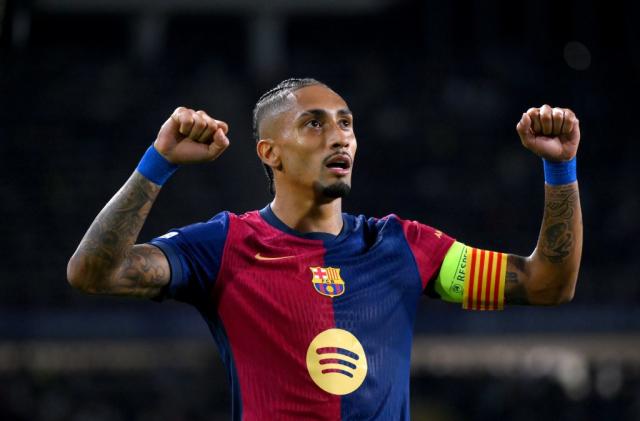- By Ibrahim Ayyub
- Follow Ibrahim on Twitter
Back in 2019, Frenkie de Jong’s potential was undeniable. His performances in midfield for Ajax showcased a superb ability to dictate play, break lines with precision passes and also carry the ball with grace under pressure. Expectations were sky-high for de Jong at the club and international level. When FC Barcelona won his signature, his arrival was viewed as the successor to Barça legend Sergio Busquets where he could become a linchpin for the team’s return to its glory days. As a longtime Barça fan, I was exhilarated that Frenkie was going to play for my beloved Blaugrana.
Action speaks louder than words. Well, Frenkie’s performances on the pitch have been inconsistent in the past few seasons. He has struggled to consistently leave his mark on the pitch, with the occasional moments of brilliance, has failed to resonate with fans who were counting on him to influence games. Ultimately, Frenkie hasn’t delivered enough for a player of his caliber.
The excuse of having played under different managers is valid but weak. The argument has been raised that he is playing out of position but he failed to impress to replace Busquets, during and after the legendary midfielder’s departure. The fact that two youth academy players, 17-year-old Marc Bernal and the now 21-year-old Marc Casado were ahead of him in the pecking order didn’t help matters. Under current manager Hansi Flick, Frenkie is not considered the starter even though he is the current captain of the team.
His return from injury kicked off with a superb cameo performance against Real Madrid alongside Marc Casado. However, that sprinkle of magic was soon forgotten following his dreadful performances that coincided with Barça’s poor performances that saw them concede their spot atop the league standings. As a second half substitute, who came on at the hour mark away to Real Betis, Frenkie conceded a penalty and was dreadful the remainder of the match. The final insult was Barça’s big clash against Atletico Madrid at home prior to the winter break. Frenkie did not start ahead of Marc Casado, and when Hansi Flick subbed off Casado in the 80th minute in a 1-1; Frenkie remained on the bench while much maligned center back Eric Garcia got the nod. Barça ended up losing the match 1-2 and Frenkie never got on the pitch. In fact, he also didn’t feature in Barça’s prior game against Leganes who are fighting for survival.
Although Frenkie de Jong may still be deemed an important asset for the Oranje, the same can’t be said for his current club. At the moment, he is the Barça Grinch. Fans always look for a scapegoat or a whipping boy, to aim their hatred at, and right now, Frenkie is ahead of the pack of the least popular Barça player. Hopefully, Frenkie de Jong will return to the promise he once held. After all, if the Grinch was able to redeem himself, then maybe, just maybe, Frenkie’s best days with the Blaugrana are yet to come. If not, perhaps he can redeem himself by finding a new club in January.














